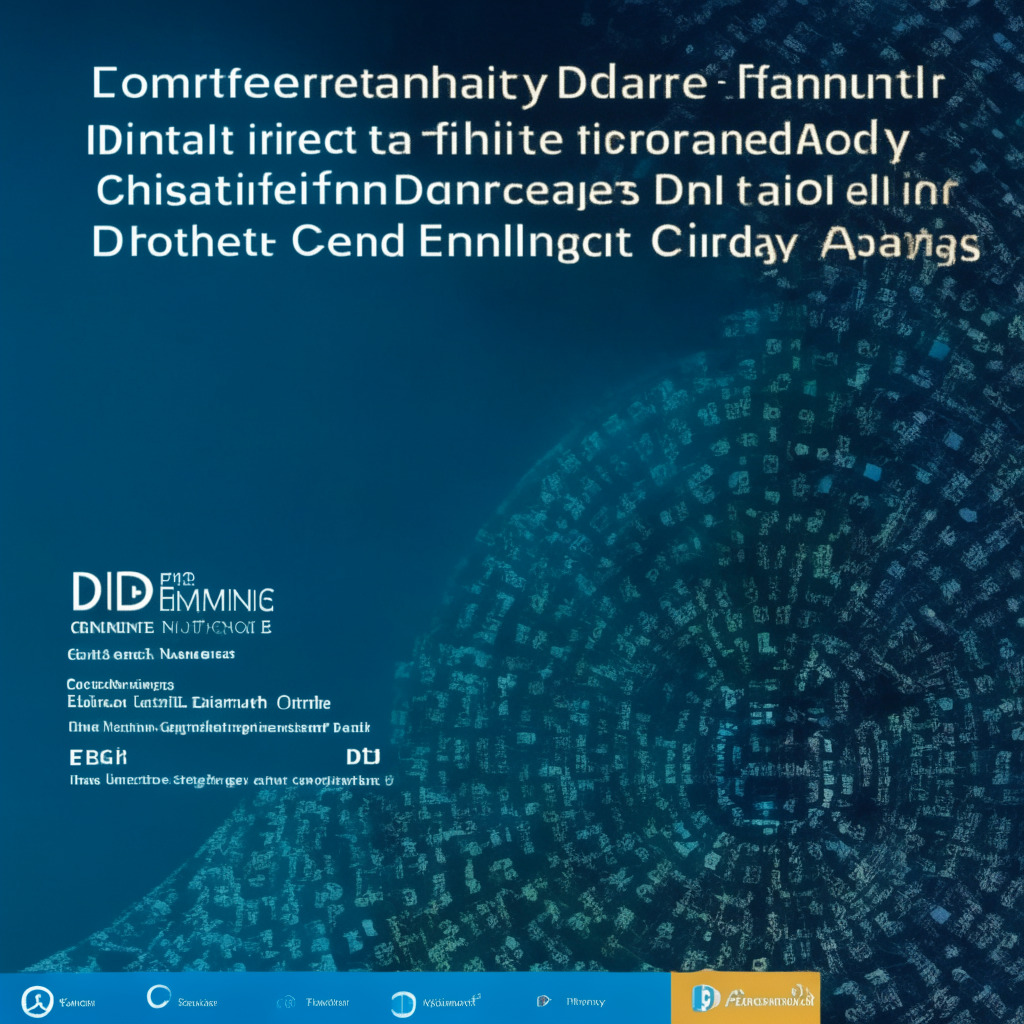Marathon Digital, a leading bitcoin mining company, faces a new SEC subpoena regarding its Montana-based data center operations, raising concerns about potential securities law violations. The company’s commitment to transparency and regulatory compliance will play a crucial role in navigating this investigation and maintaining investor trust in the rapidly evolving crypto and blockchain industry.
Search Results for: Uphold
Bitcoin Mining Firm Marathon Faces Second SEC Subpoena: Necessary Oversight or Innovation Killer?
The SEC has issued a second subpoena to Bitcoin mining company Marathon Digital, regarding its 100-megawatt data center in Montana. This highlights the evolving regulatory landscape surrounding cryptocurrencies and the ongoing debate on whether strict oversight hinders innovation within the sector.
Reddit Moderators Stand Against Crypto in Pepe Subreddits: Examining the Conflict
Reddit moderators have banned cryptocurrency promotion, including NFTs, in the “r/pepethefrog” subreddit to maintain focus on Pepe the Frog art. The decision comes amid a flood of crypto content due to the recent $PEPE memecoin frenzy. Members overwhelmingly support the action, demonstrating the importance of setting boundaries between art and cryptocurrency in the digital age.
Debating Anonymity in Digital Pounds: CBDCs vs Cryptocurrencies in the UK
At a recent Financial Times Cryptocurrency and Digital Assets Summit, Tom Mutton, the Bank of England’s head of fintech, discussed the UK’s plans for a central bank digital currency (CBDC) focusing on privacy and anonymity. While emphasizing privacy, Mutton stated that anonymity would not be intended for the digital pound and it would not be interoperable with cryptocurrencies. The Bank of England’s approach raises questions on the role of anonymity, privacy, and interoperability in the financial ecosystem.
Crypto Market Dips: XRP, Chainlink, Cardano’s Potential for Rebound and Future Growth
The crypto market has experienced a sharp sell-off, with XRP, Chainlink (LINK), and Cardano (ADA) among the top cryptocurrencies forecasted to rebound soon. Despite market turmoil, these coins show promising signs of potential recovery, but experts advise conducting personal market research before investing.
Exploring Privacy and Fraud Prevention in Central Bank Digital Currencies (CBDCs)
Central Bank Digital Currencies (CBDCs) are gaining traction as a promising solution for financial institutions worldwide. Quant, a UK-based company, is working on CBDC development, focusing on privacy while upholding Anti-Money Laundering (AML) and Know Your Customer (KYC) measures. Collaborating with the Bank of England, the potential digital pound aims to address fraud and financial crime effectively while balancing privacy concerns.
Balancing Crypto Regulation: The Impact of Bankman-Fried’s Case on Global Policies
The regulatory landscape surrounding cryptocurrencies is evolving as governments grapple with digital assets. The case of Sam Bankman-Fried, founder and former CEO of FTX, seeking dismissal of criminal charges against him highlights the ongoing regulatory struggle between fostering innovation in a burgeoning industry and ensuring consumer protection and public interest.
Striking the Balance: Cryptocurrency Regulations, Innovation, and Consumer Protection
This article discusses the complexities of cryptocurrency regulations, emphasizing the need to strike a balance between fostering innovation and safeguarding consumers’ and investors’ interests. It highlights the importance of international cooperation and well-calibrated regulations to ensure a thriving, secure, and fair market.
Unmasking FTX’s 9 Million Users: Striking a Balance Between Transparency and Security
Major media outlets request the release of 9 million FTX customers and creditors in a bankruptcy case to ensure legal transparency. However, the crypto community fears that the list’s exposure could make customers susceptible to scams, raising questions on striking a balance between transparency and user-data security.
Block’s Bitcoin Revenue Surge: Promise or Peril in Crypto Dependence?
Block, formerly Square Inc., reported impressive growth with $2.16 billion in Bitcoin revenue in Q1 through its Cash App. While the rise signifies a positive sign for the crypto market, skepticism remains as the unstable nature of digital assets could expose the company to market volatility, potentially causing unpredictable fluctuations in revenue.
Balancing CBDC Progress: Privacy Concerns vs. Blockchain Innovation and Financial Inclusion
North Carolina’s House of Representatives unanimously voted in favor of a bill prohibiting state’s government entities from accepting CBDCs, raising questions on embracing or restricting such currencies. CBDCs face debates on privacy, governmental control, and improved transaction speed, financial inclusion, and security compared to decentralized cryptocurrencies.
Freezing SpartacusDAO’s Crypto Assets: Legal Battle Exposes Regulatory Struggles in a Digital World
A federal judge maintains a freeze on $35 million in crypto assets belonging to SpartacusDAO, facing a lawsuit from unhappy investors. This decision highlights the struggle in regulating the crypto industry amidst digital innovation and raises questions on safety, compliance, and governance in the rapidly evolving crypto market.
The Symbiotic Relationship Between Crypto Journalism and Blockchain Evolution
Over the past decade, the cryptocurrency and blockchain industry has experienced ups and downs, with market capitalization skyrocketing 160,000% to $1.77 trillion. The role of journalism in exposing failures and promoting transparency aligns with the crypto industry’s values, making it crucial for continued growth and learning from past mistakes.
Coinbase vs SEC: Striking a Balance Between Regulatory Clarity and Crypto Innovation
Coinbase is in a legal battle with the SEC, seeking transparent rules and guidelines for trading digital assets. This dispute raises concerns about cryptocurrency regulation and highlights the tension between requiring regulatory clarity and fostering innovation in the digital asset space.
FTX vs Genesis Bankruptcy: Unraveling the $4B Crypto Dilemma & Market Stability Concerns
The bankruptcies of crypto exchange FTX and Genesis Global Capital put the stability and security of the crypto market into question, sparking discussions on risk management within the industry. Legal proceedings demonstrate the dedication to fairness and trust, but also highlight potential shortcomings in the decentralized, unregulated nature of cryptocurrencies.
Crypto Advocacy Group’s Move to Washington Amid Regulatory Crackdown: Resilience or Retreat?
The Blockchain Association’s relocation from New York to Washington counters growing regulatory pressure on the crypto industry and highlights the ongoing debate between fostering innovation and ensuring consumer security and market stability.
Balancing Blockchain Innovation and Regulation: Pros, Cons, and Finding the Sweet Spot
This article discusses the debate surrounding regulations in the blockchain industry, particularly the balance between ensuring safety and law enforcement while preserving innovation, independence, and anonymity. Highlighting recent cases involving the FBI, the piece emphasizes the challenge in finding an optimal balance for the industry’s growth, innovation, and security.
Cryptocurrency Exchange Transparency: Ensuring Trust and Security in the Age of DeFi
The recent crash of FTX, a popular cryptocurrency exchange, highlights the importance of transparency and security in centralized exchanges (CEXs). To ensure asset safety, traders should consider factors such as regular audits, open communication, key metrics, security measures, and platform history and reputation when selecting a CEX.
Mastercard’s Crypto Credential: Balancing Security & Compliance with Decentralization Concerns
Mastercard introduces the Crypto Credential, a service ensuring secure, compliant transactions between verified users’ wallets, addressing fraud risks. Using CipherTrace’s technology, it aims to bridge the gap between traditional finance and digital assets while tackling challenges like user verification and compliance.
DCG’s CFO Departure Amidst $1.1B Loss: Financial Stability and the Future of Crypto
DCG’s CFO, Michael Kraines, announces departure, raising questions amid the company’s recent $1.1 billion loss in 2022. Despite financial setbacks, DCG repaid a $350 million loan, suggesting potential future growth and commitment to digital assets.
Banking Crisis Brewing: Crypto’s Booming Potential or Fed’s House of Cards?
Arthur Hayes, the co-founder of cryptocurrency exchange BitMEX, has taken to Twitter to express his […]
Poloniex Settles $7.59M Sanctions Violations: Lessons for Crypto Exchanges
The recent settlement of $7.59 million by crypto exchange Poloniex over allegations of sanctions violations […]
Sotheby’s Metaverse: P2P NFT Marketplace Honors Artist Royalties on Ethereum & Polygon
Renowned art auction house Sotheby’s has delved further into non-fungible tokens (NFTs) with its new […]
Mastercard’s Crypto Credential: A Step Towards Web3 Security or Hindrance to Digital Freedom?
Mastercard’s recent announcement of its new Web3 solution, dubbed the “Mastercard Crypto Credential,” has garnered […]
Bitcoin Mining: A Blast from the Past or the Key to Future-Proofing the Industry?
Bitcoin mining: A mere memory of the past or is it the driving force that […]
























